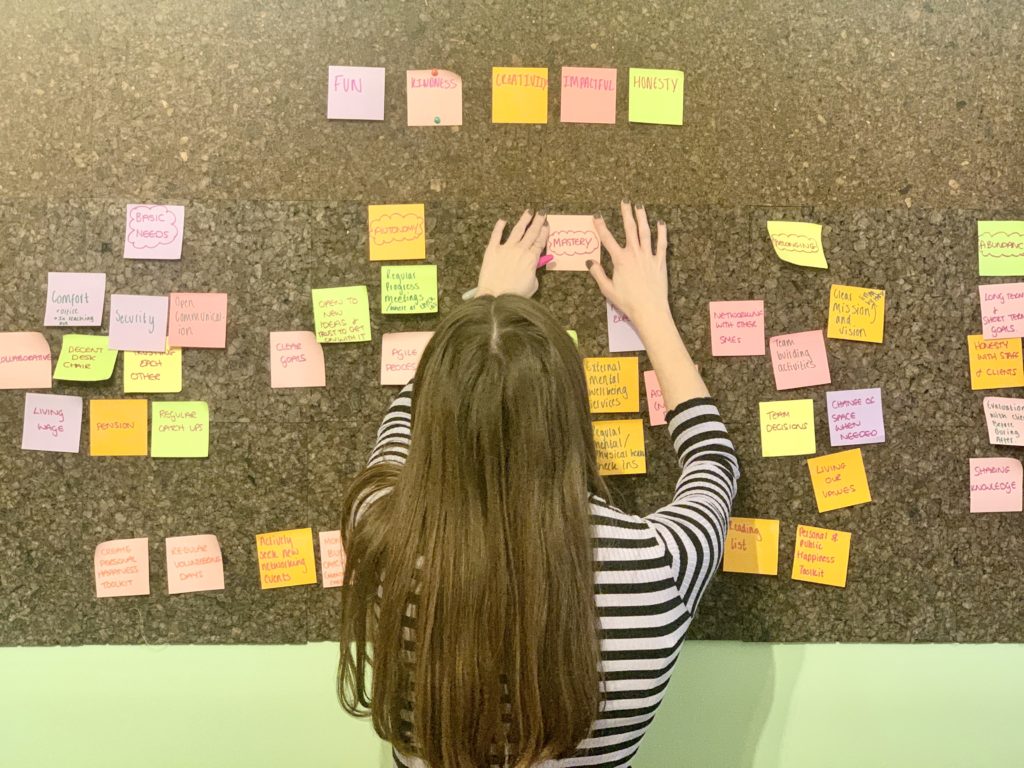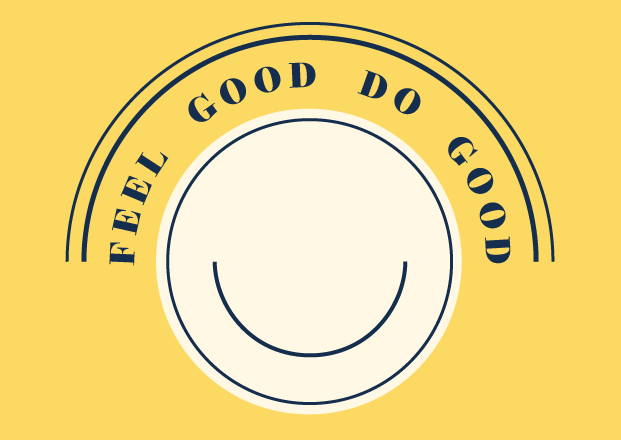Before Coronavirus hit I’d been thinking a lot about the benefits of Agile working for all. I strongly believe it’s not just for software development and can be used in any complex project.
There are elements of Agile that can benefit us all. Agile is a mindset. It can help make us more productive, more collaborative, more customer focused and even happier at work!
For the last 6 years I have worked in a number of Agile teams, becoming a Scrum Master a few years ago. Nothing rugby related I promise!
The majority of the teams I’ve worked in were digital teams working on websites, digital services and software development. However as I set up Agile teams in different organisations I realised how many non technical teams were adopting parts of Agile into their work and seeing genuine positive improvements to productivity, which in turn helps their wellbeing.
There are Agile ‘purists’ out there who will tell you it’s not ‘proper’ Agile. However for me it goes back to Agile being a mindset. Agile is something you learn over time. We slowly get better at it, day by day, when we focus on the main principles and fundamentals of what Agile really is.
Here are a few of the tenets of Agile and how they can benefit your working practices and wellbeing right now.
Benefits of Agile working in the age of Coronavirus
My favourite quote about Agile (from I know not where!) is
‘Agile is easy to understand, but difficult to master’
This quote is so true and perhaps even more true that very few teams are truly 100% Agile (enough truth in there?!). However that shouldn’t stop us trying different elements of Agile in our work, testing it out and seeing if it can help make even small improvements.
Autonomy and Trust
Agile is all about self organising, cross functional teams. There is no hierarchy. It is about trusting the team to get the work done and giving them the autonomy and support to do it.
I’ve noticed a change in hierarchy since everyone started working from home. Everyone is sat in their homes with differing levels of additional responsibilities from kids to pets to elderly relatives. Regardless of their role at work we are all just trying to get the job done as best we can right now.
Trust in your team as they work random hours to fit around new responsibilities and give them the autonomy to organise their time, to decide on their priorities and work out together who is needed to get the job done.

Respond to Change rather than follow the plan
Has there ever been a more important time to be responding to change rather than sticking to the plan. I’m not sure there is a single business, charity or public sector organisation that hasn’t had to switch up their work in recent weeks.
Life is always changing, priorities switch around, never more so than right now.
One of the big benefits of Agile working is that you’re always reprioritising, always listening to your customers, the climate, the situation and working out what bit of work should happen next. We’ve all worked on big master plans only to realise they need changing within a few days as the situation changes.
Agile allows for these changes.
It’s not that we don’t like plans, we just don’t treat them like a bible and are constantly evolving smaller plans as we work.
Be open to change, listen to your customers and reprioritise accordingly.
Work in Sprints
As above, it’s not that we don’t plan, we just work on shorter timescales, replanning every week, fortnight or month.
A sprint is a timeframe in which we work on an agreed number of tasks. Generally they are two weeks, but can be anything from 1 week to a month.
At the end of each sprint, together as a team, we review how we did and work out the next priorities dependent on what we just learnt.
We have a big ‘backlog’ of work that needs doing, which is constantly being added to (and things might be removed) and reprioritised so we can work out what is next.
An example might be that you’ve had ‘putting a training course online’ on your to do list for months and it’s just stayed there at the bottom of the list. Some day, one day. That has no doubt now been brought to the front and prioritised for this week’s sprint. It’s a priority, you’ve asked your customers, they want it, we need to do this now and push something else back down the list.
Planning in short manageable timeframes makes everything seem more achievable, than a huge never ending project. Break it down, what can you do right now, in the current situation, with the skills, equipment and people you have right now!

The Daily Scrum / Stand up
Possible my favourite element of Agile working is the daily stand up. It keeps the team together, keeps everyone accountable and helps us celebrate what we HAVE achieved each day, even if it’s small.
Many Agile teams have a morning meeting (over the phone/video these days) where each team member answers three questions.
What did you do yesterday?
What will you do today?
Do you have any Blockers?
Even if you work alone I think it’s a great way to start every day. Remind yourself of your achievements yesterday, make a clear plan for today, based on your work in the sprint. Work out if you have any blockers to getting your work done and try and remove them as soon as possible.
If you work in a team it’s a chance to stay connected with what everyone is doing and help each other out where needed and together celebrate even the small achievements.
You might want to add in a ‘How are you feeling right now?’ to encourage openness and honesty. You’re in this together and supporting team members is such an important part of Agile.
Brutal Honesty
Which brings me nicely onto my final point of Brutal Honesty. A previous coworker and Agile expert James Burgess was a big believer of brutal honesty. So much so it would sometimes get him into trouble 😉
Agile is about doing what’s best for the customer. Not the senior leadership team or ‘because that’s what the plan says’ (don’t even get my started on ‘because a Councillor said so…’).
Brutal honesty right now is also a chance for people to really share how they are feeling, the good days and the bad, so we can support each other as a team. Together moving things forward, perhaps slower than usual, but forward we go.
When you are working in a truly Agile team, and even better an Agile organisation, you will be listening to what your customers want or need ALL THE TIME. You will be switching up your plan accordingly. You will be doing what’s best for your team, for each other. Ultimately this is what is going to help your business, charity, organisation progress.
Team and customers first… the rest will follow!
Do you use elements of Agile in your work? or think you could add some of these into your daily working routines?
Jen is an Agile Coach and Certified Scrum Master. If you have any questions about Agile or would like to try Agile in your organisation. Get in touch.



Leave a Comment